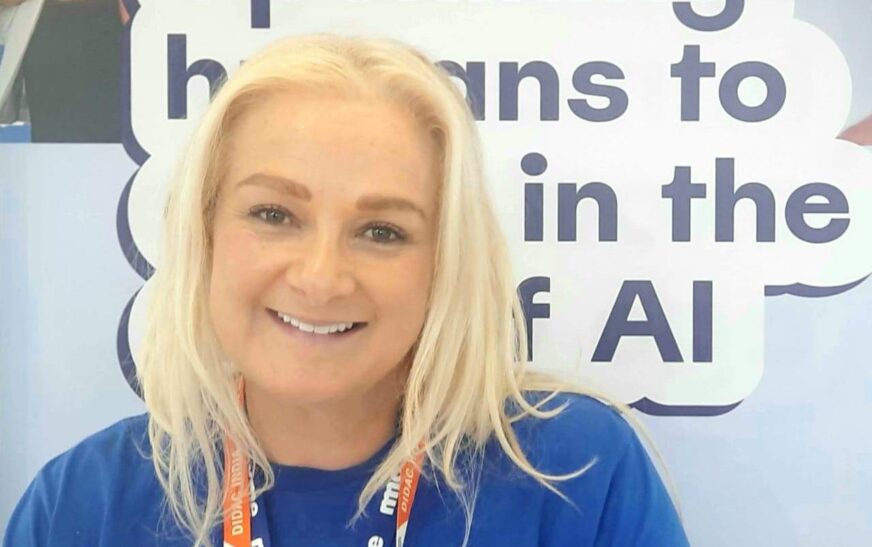Based out in Australia, Maxme is a global leader in human skill development, offering a wide range of tech-enabled products and programs designed to equip individuals with essential soft skills. These critical skills empower people to realize their full potential in both their professional and personal lives. Maxme’s flagship app, Hodie, delivers fully curated, gamified work-readiness programs for schools, alongside talent engagement and development programs tailored for workplaces. Additionally, Hodie provides coaching solutions that foster long-term success in a rapidly changing professional landscape.
Maxme’s innovative approach ensures that human skill development is accessible to anyone, anywhere, and at any time they need it. The company champions the belief that success is not a measurement of IQ alone. Rather, unlocking the uniquely human qualities can drive meaningful achievements and personal growth.
In an exclusive conversation with The Interview World, Renata Sguario, Founder and CEO of Maxme, discusses the significance of upskilling individuals in an increasingly automated and technology-driven world. She outlines how Maxme is preparing professionals with industry-ready skill development programs, designed to help them thrive in evolving workplaces. Renata also explores the rapid adoption of AI across various industries, offering insights into how AI is reshaping the job market and underlining the profound changes it will bring to the future of work. Below are the key insights from her engaging interview.
Q: With the rapid advancement of AI and the increasing digitization of the global ecosystem, how are you equipping individuals with the skills necessary to thrive in an automated and technology-driven world?
A: AI is purely technological, not human, and as a technologist, I can confidently state that technology will never replace humans. The key lies in how we prepare people to thrive in an increasingly tech-driven world. AI can never replicate the human qualities that make us unique, such as empathy, emotional intelligence, and creative problem-solving.
Our focus is to empower individuals to enhance these skills, enabling them to communicate effectively, navigate difficult conversations, and collaborate to solve complex problems. These human capabilities are often overlooked, yet they are becoming increasingly essential. As automation and AI continue to transform industries, people will quickly realize that while robots may take over routine tasks, the irreplaceable skills of empathy, creativity, and emotional intelligence will define their value in the future workforce.
Q: How does your skill development program prepare professionals to be market-ready across diverse industry segments?
A: Universities today often teach outdated skills. The demand for specific competencies shifts every six months, yet the fundamental qualities necessary for human success remain constant. Skills such as creative problem-solving, empathy, effective collaboration, communication, and idea sharing are timeless. These essential skills will not become obsolete.
Therefore, I refuse to teach skills that risk redundancy within a short timeframe. Our focus is solely on developing capabilities that will always be relevant, regardless of technological advancements. We aim to equip individuals with enduring skills that foster resilience and adaptability in a rapidly evolving landscape. This commitment ensures that learners are prepared not just for today, but for the future, no matter how technology evolves.
Q: How do you perceive the adoption of AI across various industry verticals, particularly in the education sector?
A: At the end of the day, ChatGPT significantly simplifies my professional life. Instead of dedicating countless hours to research, I can input a query, and it swiftly retrieves the necessary data. This tool effectively streamlines my workflow, allowing me to focus on more strategic tasks and reducing administrative burdens.
However, it is essential to recognize the limitations of ChatGPT. While it provides answers to my questions, it does not critically assess the accuracy of those responses. When I receive an answer, it lacks an indication of correctness. This is where human judgment becomes crucial. I must evaluate the information based on my instincts and consider how it aligns with my problem-solving process. This analytical approach ensures that I make informed decisions rather than relying solely on AI-generated content.
Incorporating ChatGPT into our workplaces enhances overall efficiency by alleviating time-consuming administrative tasks. This technological advancement allows professionals to redirect their energy toward more meaningful and fulfilling activities. As I recently came across a thought-provoking statement: “ChatGPT handles the work for me, enabling me to focus on what I truly enjoy.” This sentiment encapsulates the transformative potential of AI, illustrating how it can elevate our productivity and creativity while simplifying our day-to-day operations.
Q: While AI has significantly enhanced efficiency and productivity, it has also disrupted the job market by automating various processes and functions. How do you view this impact?
A: I often hear concerns about job security, with people stating that automation will eliminate their roles. However, this perspective is not accurate. In a service-based industry, a robot will never replicate the human touch that creates exceptional customer experiences.
At the end of the day, people will always seek the warmth and understanding that only a human can provide. Individuals are willing to invest in services that deliver outstanding outcomes and memorable experiences. As a result, the demand for skilled professionals who excel in customer service will remain strong.
I will continue to have a job because I can offer value that transcends mere commodities. My ability to connect with others and deliver personalized service is something that machines cannot replace. In a world driven by automation, the human element will remain invaluable. This ensures that there will always be opportunities for those committed to serving others effectively with soft skills.
Q: How do you see the world evolving around AI, and what significant changes do you anticipate it will bring soon?
A: Having spent many years in the technology sector, I can confidently say that AI is not a new phenomenon. I’ve witnessed countless technological trends rise and fall. What I want to emphasize is that AI will fundamentally change how we approach our work by automating boring and repetitive tasks that are easy to streamline.
However, the complex aspects of our jobs—critical thinking, emotional intelligence, and nuanced decision-making—are not easily automated. For now, these responsibilities will remain with humans. As technology takes over the mundane tasks, we will have more time to engage in creative pursuits, add real value, and foster meaningful connections with others.
This shift allows us to focus on the aspects of our work that truly matter, ultimately benefiting not only our personal growth but also the greater good of the planet. By leveraging AI to handle routine tasks, we can redirect our efforts toward innovation and collaboration, enriching both our professional lives and our communities.









